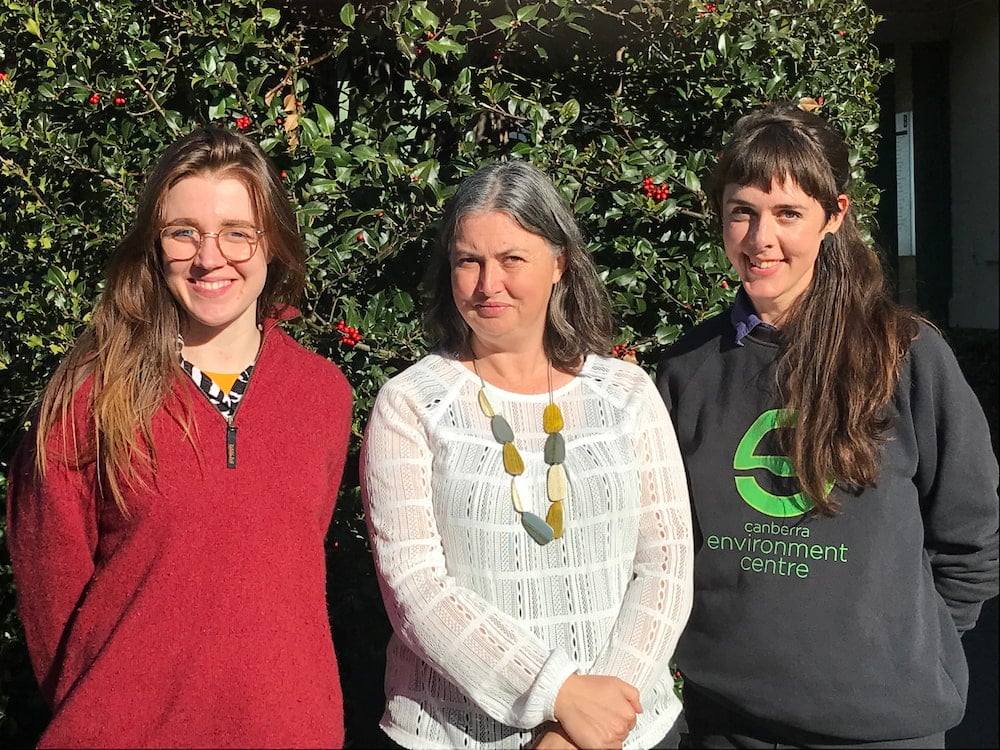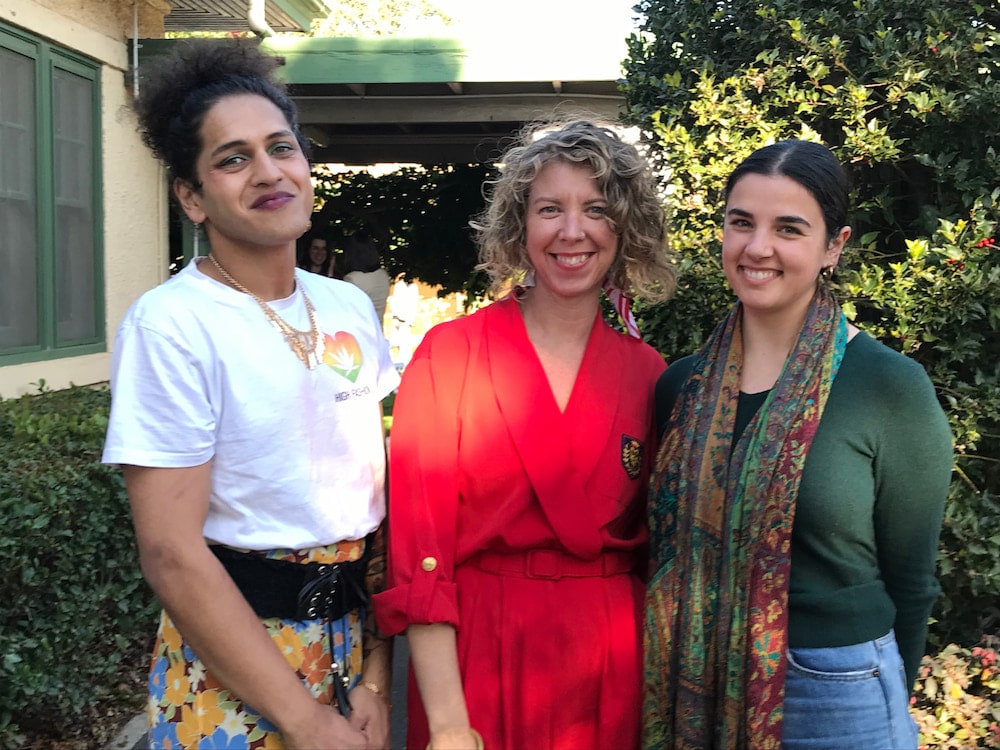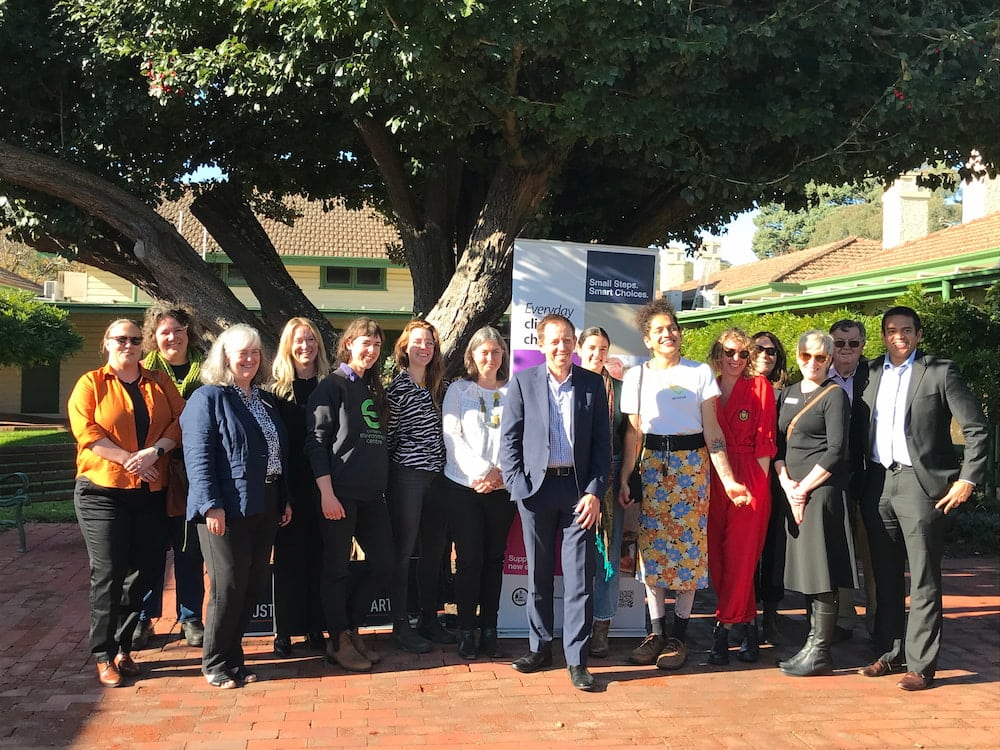Climate toolkits, gas-free kitchens, and worm farms are among the six projects funded in this year’s ACT Community Zero Emissions Grants, totalling $155,000.
Shane Rattenbury, ACT minister for water, energy, and emissions reduction, said the grants unleash community enthusiasm, and empower people to take grassroots climate action.
The 2020s, he said, are the “critical decade” to reduce greenhouse gas emissions. “It’s now or never, and to see [the public] stepping up and taking on a leadership role really inspires me.” Many of the projects will also make Canberra more resilient to climate change.
“Science can get dire sometimes, and leave people feeling glum. So having some great inspiring projects is an important part of the story,” he said.
Canberra Environment Centre
The Canberra Environment Centre will receive nearly $50,000 to expand their Adapt for Climate Toolkit.

The toolkit’s first iteration is on their website; this year, they will create films and podcasts, and run workshops about resilience to climate change, including practical skills like composting, creating verge gardens and pollinator-friendly gardens, and growing your own food.
“We wouldn’t be able to do it without the grant,” executive director Holly Trueman said. “This is the sort of content that we just wouldn’t be able to make without that support at all. It allows us to talk to a huge audience and collaborate with really influential people.”
Other community groups with which the Canberra Environment Centre works will also benefit: ACT for Bees & Other Pollinators; the Ainslie Urban Farm (Fiona Buining); and the Climate Factory (Edwina Robinson).
“Over the next 10 years, things are going to change quickly,” Ms Trueman said. Builders, for instance, may have to change building requirements, because climate change might cause tornadoes. “Those sorts of things are left of field, and so we need to be resilient and ready for the things that we haven’t seen before.”
“Whether we like it or not, we are now in an era where climate impacts are upon us, and adaptation is unfortunately as important as mitigation,” Mr Rattenbury said.
The Canberra Environment Centre has run for 47 years. It talks to the public about education and the environment, and provides “practical ways for people to change their behaviour and tread lightly on the environment”, deputy director Fiona Veikkanen said.
“If you have an idea for a project and you need some support, those are the kind of things we love to collaborate on,” projects officer Zoe McMahon said.
Volunteers are always wanted, too.
The Food Co-Operative Shop
The Food Co-Op at ANU received more than $15,600 to convert their café kitchen from gas to electric, which will save on energy, be safer for their volunteer cooks, and be cheaper, too.
“Moving away from gas and going to electric will help contribute to our ongoing viability as a business,” board chair Lucaya Rich said.

They will also use the grant to run low-waste workshops, teaching the community how to repurpose food waste or expiring food into new creations (beauty and skin products, dyes, preserves). Each workshop will cost $20.
The Co-Op will also create a community compost hub. People will be able to drop off their compostable food scraps, and the Patchwork Urban Farm will turn it into compost to grow organic vegetables in urban gardens.
“We’re surrounded by high-rise apartment buildings and university accommodation,” Ms Rich said. “People live in tiny little homes, and so don’t have space for a compost bin, but still generate food waste. We hope that by being a central point, people can come and drop off their compost. Otherwise, had that compost gone into the bin, it creates massive amounts of methane gases.”
The grant will also help the Co-op to run workshops for disabled people and other community groups, operations manager Monique Purton said.
The Co-op is the oldest food co-operative in Australia, founded in 1974 – and, events and communications manager Yani x said, students have called it “a saving grace”. Its café serves lunch six days a week – noon to 2pm, Mondays to Saturday – while the shop sells 10 frozen meals for less than $60.
While it began as a student co-operative, anyone can shop there. (Members get discounts.) The business is not-for-profit, so prices are lower, and money goes to local growers and suppliers.
Other grant recipients
Asthma Australia Limited received $39,500 for their ACT AirSmart Program, a public health campaign to improve the community awareness of air quality information, helping the community to feel empowered and safe should another emergency like the 2019 / 20 bushfires arise, Mr Rattenbury said.
The Australian National University received nearly $22,300 for their kitchen garden worm farm and to run workshops on worm farming.
St Clare’s College received $20,000 for its paddock-to-plate garden, and to implement an organic waste processing system.
“The thing I like about the school projects,” Mr Rattenbury said, “is usually the students go home and nag their parents to do the same things at home, so that sustainability message gets amplified into a much broader impact.”
Canberra City Farm received a little more than $8,000 for a composting shredder to improve waste management and compost production on site.



